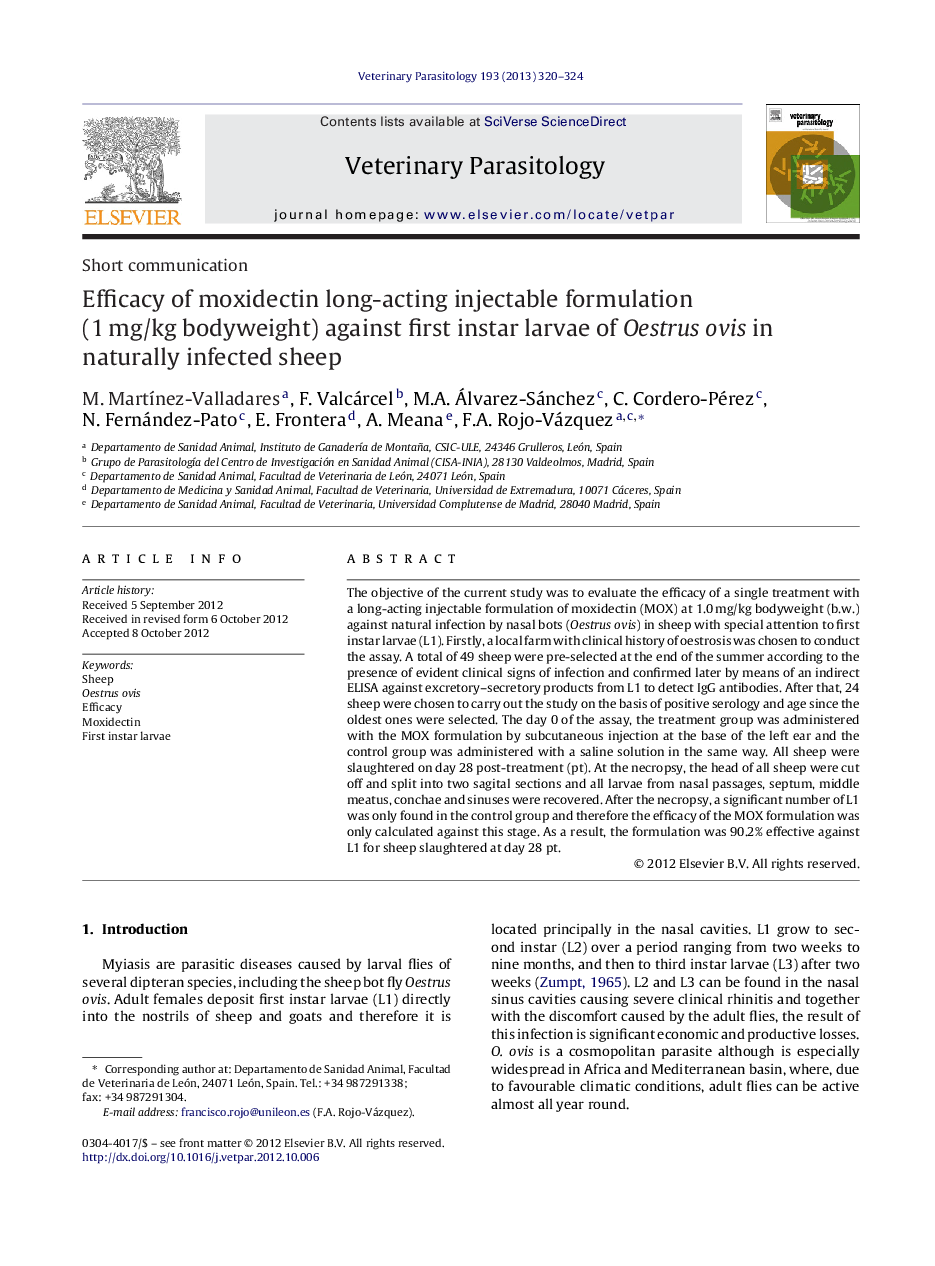| Article ID | Journal | Published Year | Pages | File Type |
|---|---|---|---|---|
| 5804363 | Veterinary Parasitology | 2013 | 5 Pages |
The objective of the current study was to evaluate the efficacy of a single treatment with a long-acting injectable formulation of moxidectin (MOX) at 1.0Â mg/kg bodyweight (b.w.) against natural infection by nasal bots (Oestrus ovis) in sheep with special attention to first instar larvae (L1). Firstly, a local farm with clinical history of oestrosis was chosen to conduct the assay. A total of 49 sheep were pre-selected at the end of the summer according to the presence of evident clinical signs of infection and confirmed later by means of an indirect ELISA against excretory-secretory products from L1 to detect IgG antibodies. After that, 24 sheep were chosen to carry out the study on the basis of positive serology and age since the oldest ones were selected. The day 0 of the assay, the treatment group was administered with the MOX formulation by subcutaneous injection at the base of the left ear and the control group was administered with a saline solution in the same way. All sheep were slaughtered on day 28 post-treatment (pt). At the necropsy, the head of all sheep were cut off and split into two sagital sections and all larvae from nasal passages, septum, middle meatus, conchae and sinuses were recovered. After the necropsy, a significant number of L1 was only found in the control group and therefore the efficacy of the MOX formulation was only calculated against this stage. As a result, the formulation was 90.2% effective against L1 for sheep slaughtered at day 28 pt.
